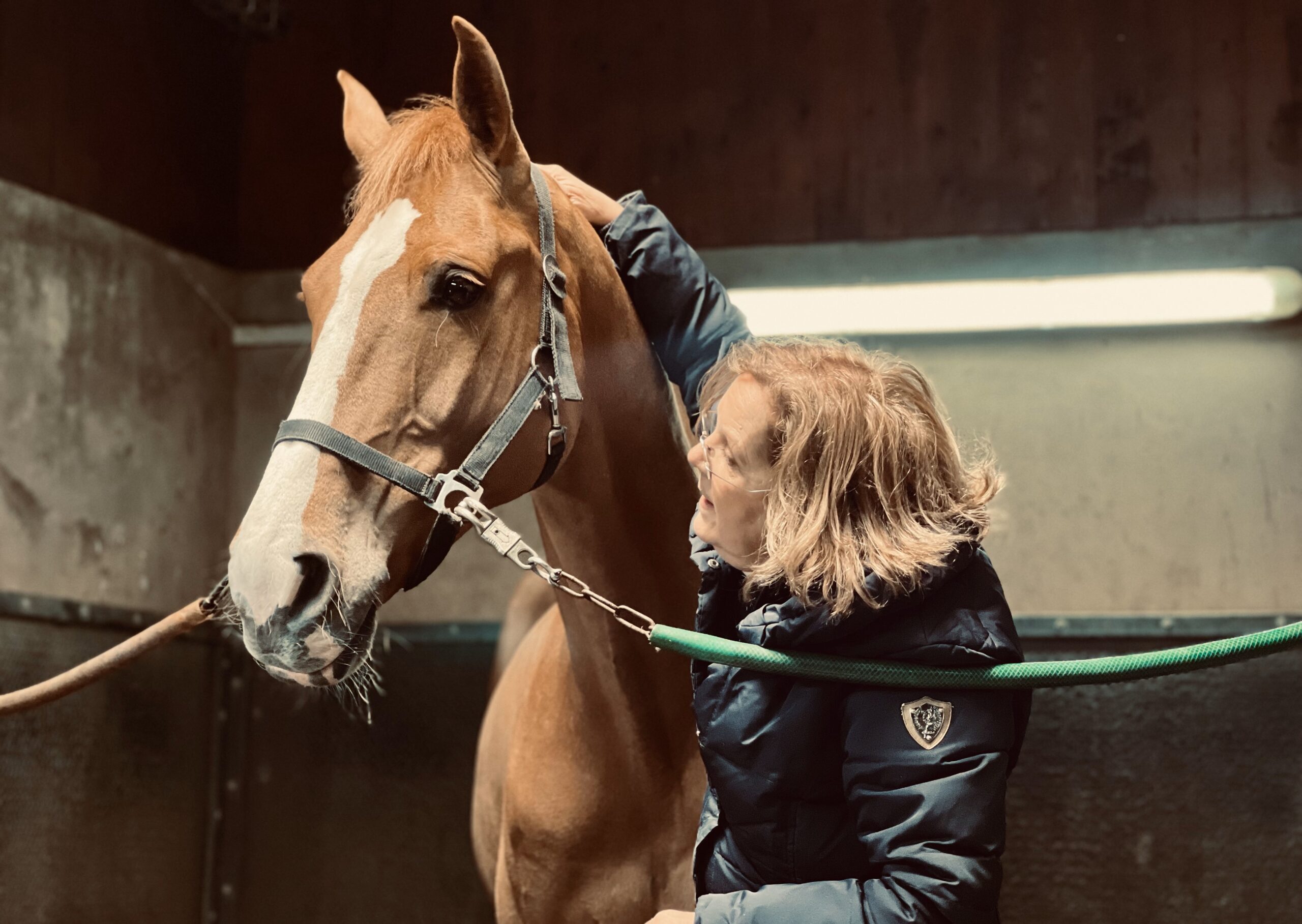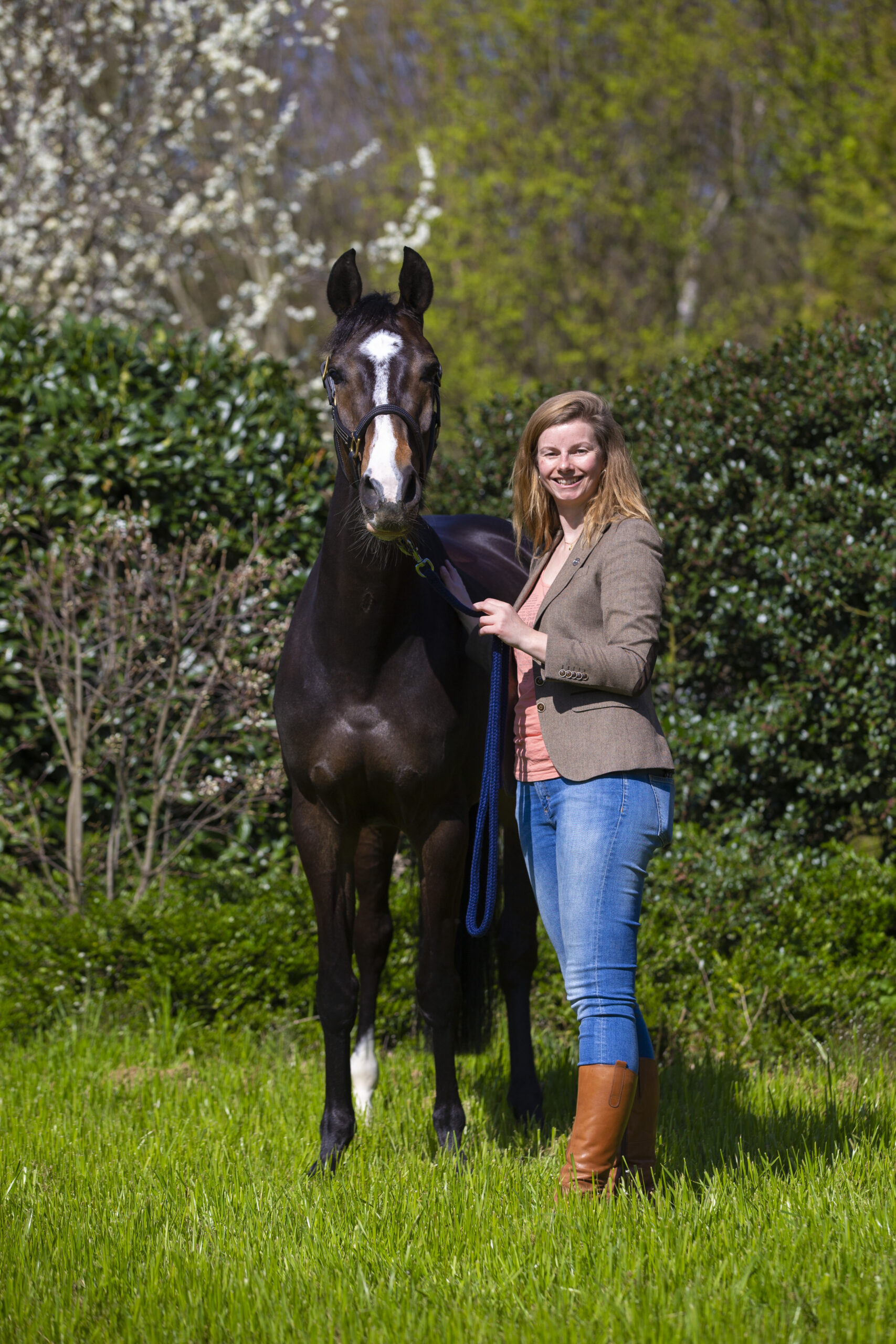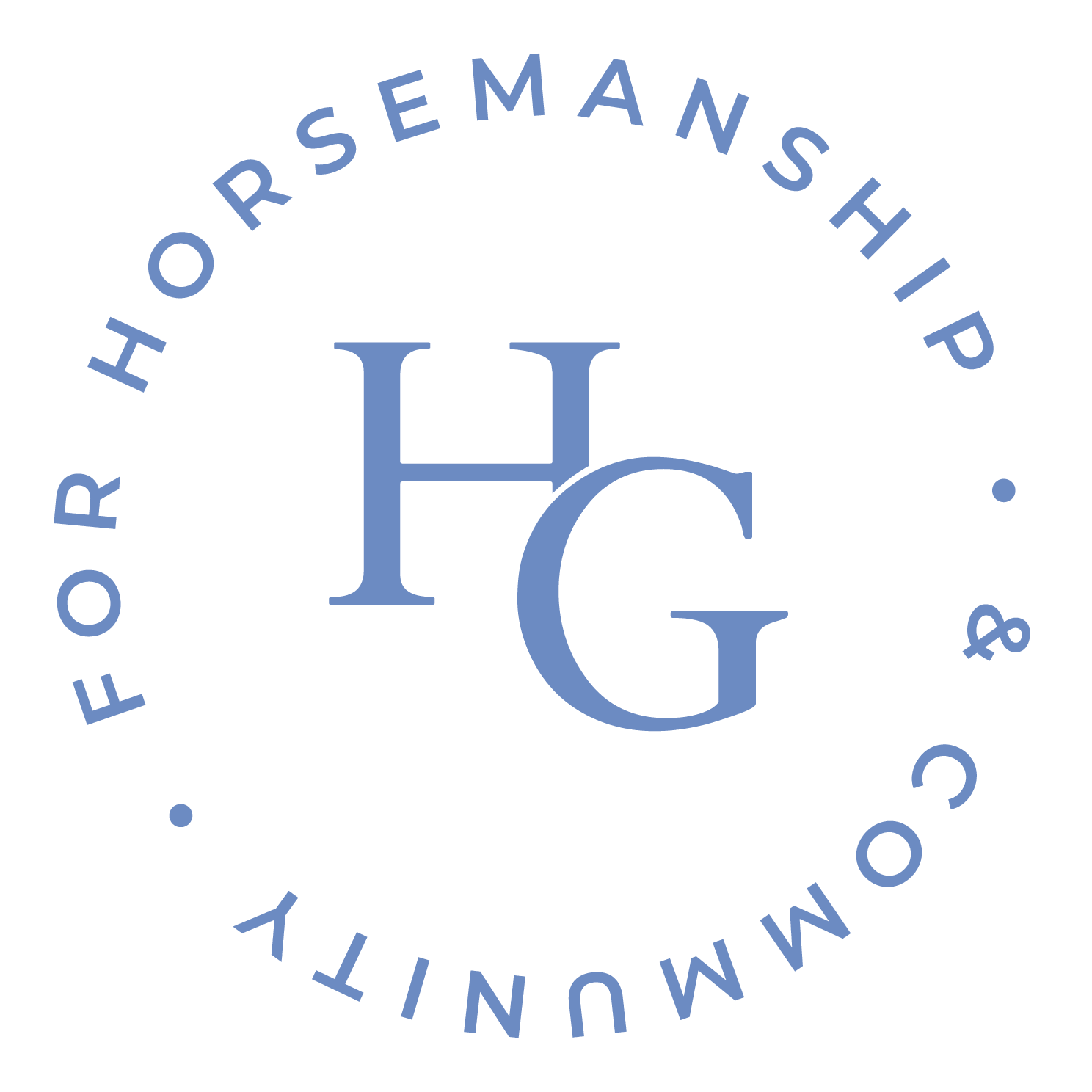Paulien’s work extends far beyond speaking with horses. She provides healing energy to relieve pain, stress and trauma, guiding horses toward a state of peace and balance. Despite the remarkable results she has achieved, Paulien has faced skepticism and criticism from those who doubt her abilities or dismiss her work. Yet, her insights have been transformative for equestrians like the 2010 World Equestrian Games individual gold medalist Philippe Le Jeune and Dutch Olympian Jur Vrieling.
Horses See Their Grooms As Their Safe Haven
Although, for Paulien, every horse matters — whether it’s a high-profile competition horse, a trail companion or a pasture buddy – her philosophy highlights the essential role of grooms, whose dedication and commitment form the foundation of the horses’ sense of safety and trust. For Paulien, grooms are the unsung heroes of the equestrian world. Horses see their grooms as their safe haven — a steady presence in a life full of training and competition. Paulien recognizes how deeply grooms give of themselves, often at great personal cost, to ensure their horses thrive. She urges grooms to care for themselves as much as they care for the horses, emphasizing that their well-being is vital to sustaining the beautiful connections they create.
Horses are remarkable creatures, capable of recognizing the love and effort their grooms pour into them. As Paulien says, “Grooms are everything to these horses.” Through her unique work, she reminds us that the bond between a groom and a horse is invaluable, and honoring this connection is essential for the welfare of both.
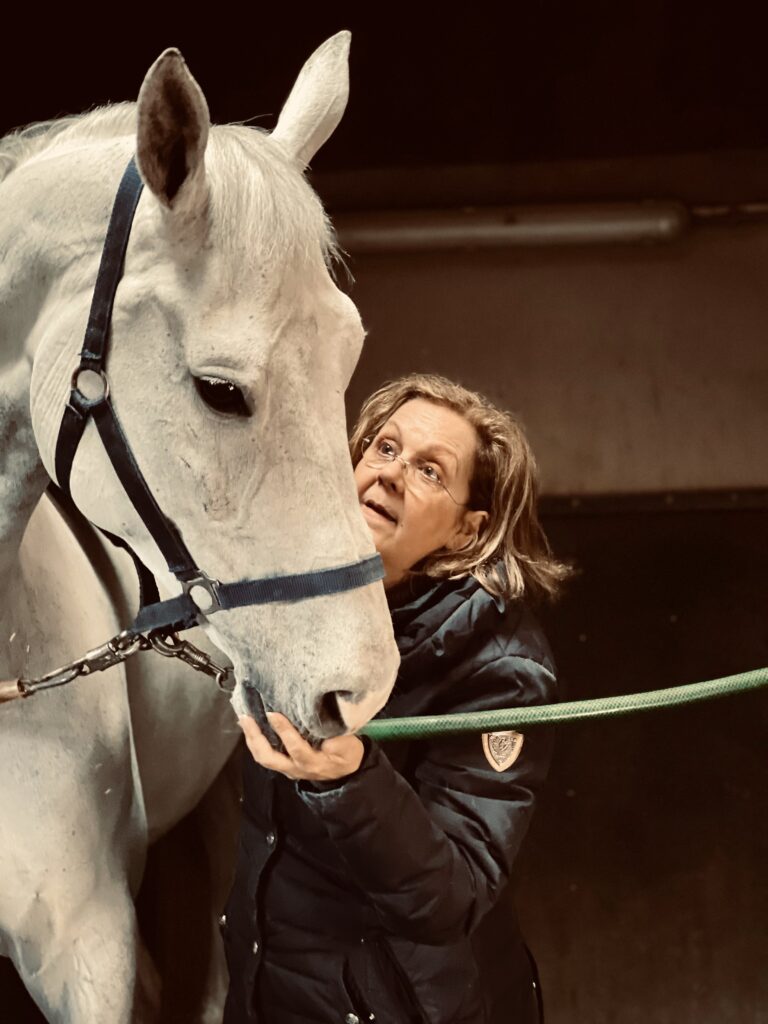
In the following interview with Adriana van Tilburg, Paulien shares her insights on the importance of this bond, the challenges grooms face, and how her work aims to support both horses and the people who care for them.
Who is Paulien?
Paulien has had a special gift for communicating with animals, particularly horses, from a very young age. Spirituality has become an integral part of her life, and through her work, she has gained increased recognition — much more than people might realize. Even top athletes seek her out through word of mouth. She has worked with renowned names like Belgian show jumper Phillippe Le Jeune, Dutch eventer Tim Lips, Dutch show jumper Jur Vrieling, Dutch show jumper and national team coach Rob Ehrens and French equestrian performer Alizée Froment to treat their horses. This brings her into contact with many elite sport horses, as well as the grooms who care for them. I asked her about the challenges Paulien encounters in her work, and what message she has for grooms.
What Is It That You Do Exactly?
“What I do is not just have a little chat with a horse. A horse tells me where they might have pain, trauma or stress, and I feel it in my own body,” says Paulien. “In addition, I give what is called an energy treatment using my hands and mind. During this process, all waste substances are removed, and the energy pathways are realigned. During a treatment, horses often go into a deep trance, or I use hypnosis to help them forget everything. Horses are unique in that they can completely let go of what they’ve experienced and no longer think about it. After a session, they’re completely exhausted, and I always advise the owner or rider to give the horse at least three days of rest to process everything in their mind and body.
After the treatment, I’m also very tired and often in pain. That’s why I can’t do this as a full-time job. I choose the horses that need help the most and whose owners are truly committed to making changes. So, it’s absolutely not just a casual chat with a horse. If that’s what people are looking for, I refer them to someone else.”
Could you describe the moment when you first realized you had a special gift for communicating with horses?
“I was born with it, and I always assumed everyone could talk to animals, just like with dogs and cats. As a young girl, I would often bring stray dogs home, much to my mother’s dismay. I’ll never forget when I was 8 years old, walking through a street in Utrecht [the Netherlands], and I saw a Bouvier tied to a lamppost. The dog was telling me, ‘Ouch, ouch, ouch, take me with you. My owner is going to hit me.’ I noticed a large man inside the grocery store. I didn’t return home with the groceries my mother had sent me for, but I did bring home the dog.”
A Puppy In A Pet Store
“My father was a well-known wrestler in Utrecht and also worked as a bouncer at dance halls. He believed me because his own mother had the same gift. He went to the grocer and made sure the man was never allowed to own a dog again. My father then found a good home for the dog.
When my 12th birthday was approaching, I had seen a puppy in a pet store, and I just knew I had to have him. I spoke to the puppy, and it was clear to me that we belonged together. I had already told my father that I wanted the dog, but my mother had different plans — she thought I should get a bicycle for my birthday. On the morning of my birthday, there was a bike waiting in the hallway, but I wasn’t interested in it at all. I stormed off to the swimming pool, upset. My father followed me there and asked if I really didn’t want the bike. ‘No,’ I said, ‘I want the dog.’ So, my father took me to the pet store, and while I waited in the car, he went inside. Eventually, that puppy became part of our family for 15 years. Despite her initial reluctance, my mother grew to adore him. He was my first pet.”
How is your way of communicating with horses different from what others might experience?
“For me, it’s quite normal. I believe there are more people out there with this ability. When I pass by horses, I immediately sense if something is wrong just by looking at them. For instance, I might suddenly feel pain in my right leg and start walking awkwardly. It can be frustrating at times. I’m straightforward and don’t use complicated language. If I don’t know something, I simply say that I don’t know. Some clients want to hear certain things, but I won’t go along with that. I can be quite blunt. For example, if someone has been struggling with a horse for a long time, I might tell them they need to accept that there’s no connection. You can’t force something that’s not there. And often, horses feel relieved to finally hear this. Honesty really is the best policy.
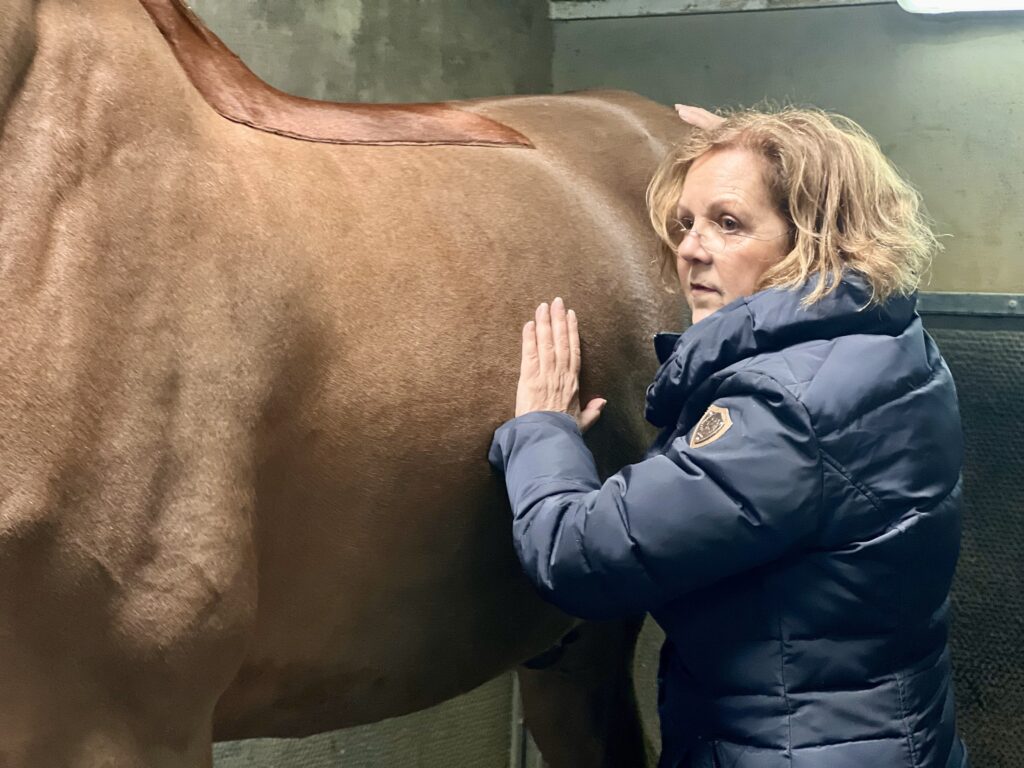
There’s something else I want to add. Sometimes, I’m curious about how others work, so I look online. For example, some services ask you to send in a photo of the horse without any description, and they claim they can tell you what’s going on just by looking at it. There’s often a 12-week waiting list, and you have to pay upfront. When I read the feedback people get, I think to myself, anyone could say that — things like, ‘Your horse is happy and loves you.’ And for that, people pay 85 euros? To me, it feels a bit fake, sorry. I prefer hands-on treatment with the horse because then you can see real, immediate results. That’s a fundamental difference. They read a photo while I actually treat the horse.”
Do you think horses can communicate emotions, and how do you interpret these signals?
“Every animal has emotions, and of course, horses do, too. Recently, I received a call from a lady who was having issues with her Friesian horse. She was convinced that he was deaf because he was acting up, difficult, and no one seemed to get through to him. The idea of him being deaf caught my attention, as I’ve treated a deaf horse before, and when I did, my ears would ring shut. I’m not a vet, but I usually tell the owner to have the vet check it out because I have a suspicion, and it often turns out to be right.”
She Was Deaf To The Horse
“This horse, however, wasn’t deaf. What I told the owner was that it wasn’t the horse that wasn’t listening – it was her who was deaf to the horse. This horse had been brought to her as a 5-month-old foal with his mother alongside him, and he was weaned the moment they were unloaded from the trailer. The horse had been holding onto the stress of that experience ever since. Three other horses had also died at that stable in quick succession, and the owner hadn’t allowed him to say goodbye to any of them. The horse was acting out, but he wasn’t difficult at all — he was actually incredibly sweet and sensitive. The owner was shocked but is now fully on board with understanding his needs.
In general, I often wonder how a horse can be used in equine therapy if it isn’t feeling well emotionally. How is that horse supposed to help me as a person? We need to be mindful of that. It’s so important to simply watch your horse closely. I just tell the truth about what horses communicate to me, and it doesn’t really matter to me who’s standing in front of me.”
What do you think is an important factor in building a strong bond between a groom and a horse?
“I’ll start with an example you can write down about Jur Vrieling. He called me and said he had a stallion with whom he couldn’t establish a connection. Now, Jur is absolutely fantastic with his horses and so are his grooms. When I arrived to see the stallion, it was clear that the horse didn’t want to bond with the grooms but with Jur himself. At that time, Jur had a busy schedule, riding many horses each day. I told him that he needed to personally take the stallion out of the box, groom him, tack him up, talk to him and spend time walking with him. Jur immediately followed this advice, and the results spoke for themselves. So, it can also happen that some horses prefer a bond with their rider.
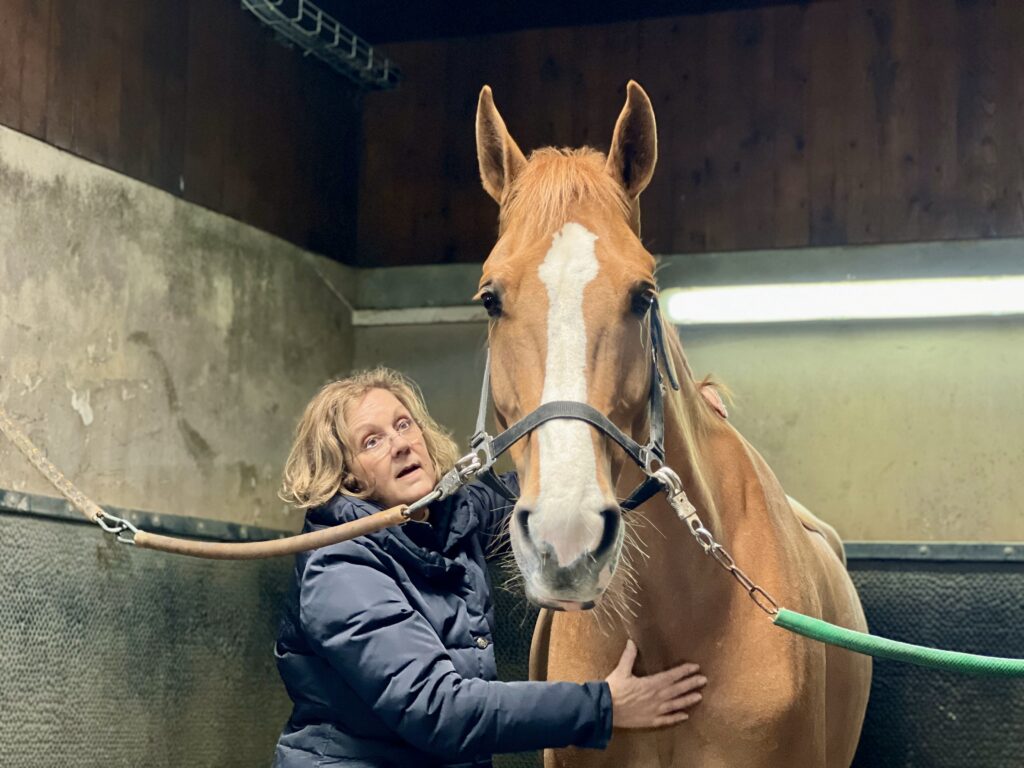
There are also grooms who hold everything inside for the sake of the horses, and the horses recognize that. For these grooms, the horses mean everything, and the horses sense their commitment.”
What do you consider the most important aspect of the partnership between a groom and a horse?
“Horses see their grooms as their safe haven. These sport horses have a switch in their minds that tells them, ‘My groom is here, and now it’s time to work.’ When they understand this, everything falls into place. They know that once the job is done, their groom will be there waiting for them. You can even see it in their expressions. Grooms are everything to these horses. There are many excellent grooms who stay at stables even when conditions aren’t ideal, simply because they don’t want to abandon the horses they care for.”
What advice would you give to grooms?
“I think grooms give everything to the horses, but they need to think more about themselves. They need to protect themselves better. Despite their deep love for the horses, it’s not worth sacrificing their own well-being. There are some awful stables, and if you witness cruelty or abuse, you need to walk away. Tell the horses you can’t take it anymore — they’ll understand. Those who do this work are full of love for the horses; otherwise, they wouldn’t be able to do it for such little pay. But grooms need to start prioritizing themselves more because there are some terrible places out there. And at the end of the day, these boys and girls go to bed carrying the weight of what they’ve seen. They stay with the horses, hoping to prevent something bad from happening, but they can’t, because the egoists who run those stables are only interested in money. The faster everything goes, the better it is for them.”
What do you think horses teach us about care, patience and partnership?
“Horses can teach us so much, but only if we’re open to it. That’s the real issue — we don’t look or listen enough. We need to listen to our horses, whether in the stable, outside or while riding. Observe their ears, eyes, nose, mouth and tail. For example, if a horse has passed away or been sold, don’t think it’s just part of the process. No, a horse sees it very differently. Pay attention and allow them to say goodbye. Tell the horse that another horse has been sold and that it’s not their fault. Reflect on why a horse’s behavior may have changed. What has happened in the past year? Have you been in the hospital or experienced something else? Horses can worry about these things and when you address it, it often helps them.”
